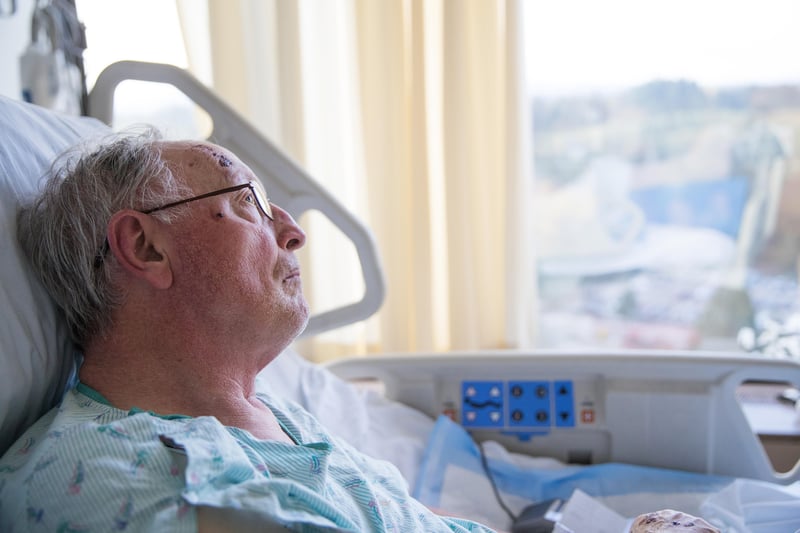Get Healthy!

- Cara Murez
- Posted March 21, 2023
Medication Shortage Means Many With Advanced Prostate Cancer Are Missing Treatments
An ongoing shortage of a drug for men with advanced prostate cancer is causing some patients to miss months of potentially life-extending treatment.
The drug's maker, Novartis Pharmaceuticals Corp., has said it can't keep up with demand for the medication, known as Pluvicto.
Doctors have had to reschedule some patients who were due to start their first doses of the treatment. Meanwhile, the company said it is prioritizing those who are already being treated with six cycles of the drug, but even some of those patients have not been able to get their medication.
"We recognize that any rescheduled dose is distressing for patients and their loved ones and poses challenges for the treatment centers. We are striving to serve as many patients as possible as quickly as possible as we work through the current situation,"Novartis said in a recent news release.
Among U.S. men, prostate cancer is the second most common cancer and the second leading cause of cancer death. About 34,700 Americans die from the disease each year, according to the American Cancer Society.
Prostate cancer has no cure at this advanced stage. Pluvicto was designed to treat metastatic castration-resistant prostate cancer with targeted radioligand therapy, according to the company. The medication delivers radiation to targeted cells using radioactive atoms.
The drug's entry into the marketplace was approved by the U.S. Food and Drug Administration in March 2022, and its arrival was met with a lot of excitement, Dr. Daniel Spratt, chair of the department of radiation oncology at University Hospitals Seidman Cancer Center in Cleveland, told CNN.
"Some men and their physicians will feel that some hope was taken from them,"Spratt said. "Cancer is the enemy here, not the company, but it's unfortunate to have that excitement that your physician will be able to prescribe it to you and just not be able to give it to them."
Novartis said it makes the medication for U.S. patients at its plant in Ivrea, Italy. It suspended production last May because of "an abundance of caution"over potential quality issues, CNN reported. It also suspended production at its plant in New Jersey, where it makes the drug for the Canadian marketplace.
Production restarted at both plants last June, CNN reported.
Novartis has also recently completed its filing to make the drug for U.S. patients at its New Jersey plant, and it is also building a plant in Indianapolis, with production possible there by the end of the year.
The FDA told CNN that it "is not able to discuss details regarding any possible communications or actions with companies due to commercial confidential information."
"To be clear, FDA does not manufacture, produce, bottle or ship drugs and cannot force companies to do so or make more of a drug. However, in general, the FDA works with firms making drugs in shortage to help them ramp up production if they are willing to do so. Often, they need new production lines approved or need new raw material sources approved to help increase supplies. FDA can and does expedite review of these to help resolve shortages of medically necessary drugs,"the FDA said.
The Pluvicto shortage also means that the medication isn't available for research, such as whether the drug may also help patients before their cancer is advanced, CNN reported.
"We're anxious to have greater supply to study it in broader populations,"Dr. William Dahut, chief scientific officer at the American Cancer Society, told CNN.
Dahut noted the impact of the drug on certain patients. A study from a Novartis trial found that people who received the treatment lived a median of about 15 months after diagnosis, four months longer than those without the treatment. And for some, it was even more impactful.
"There are some patients that really do have those sort of miraculous responses, so it does occasionally give us one of those 'wow' moments,"Dahut said.
More information
The U.S. National Cancer Institute has more on prostate cancer.
SOURCES: Novartis Pharmaceuticals Corp., news release, March 9, 2023; CNN







